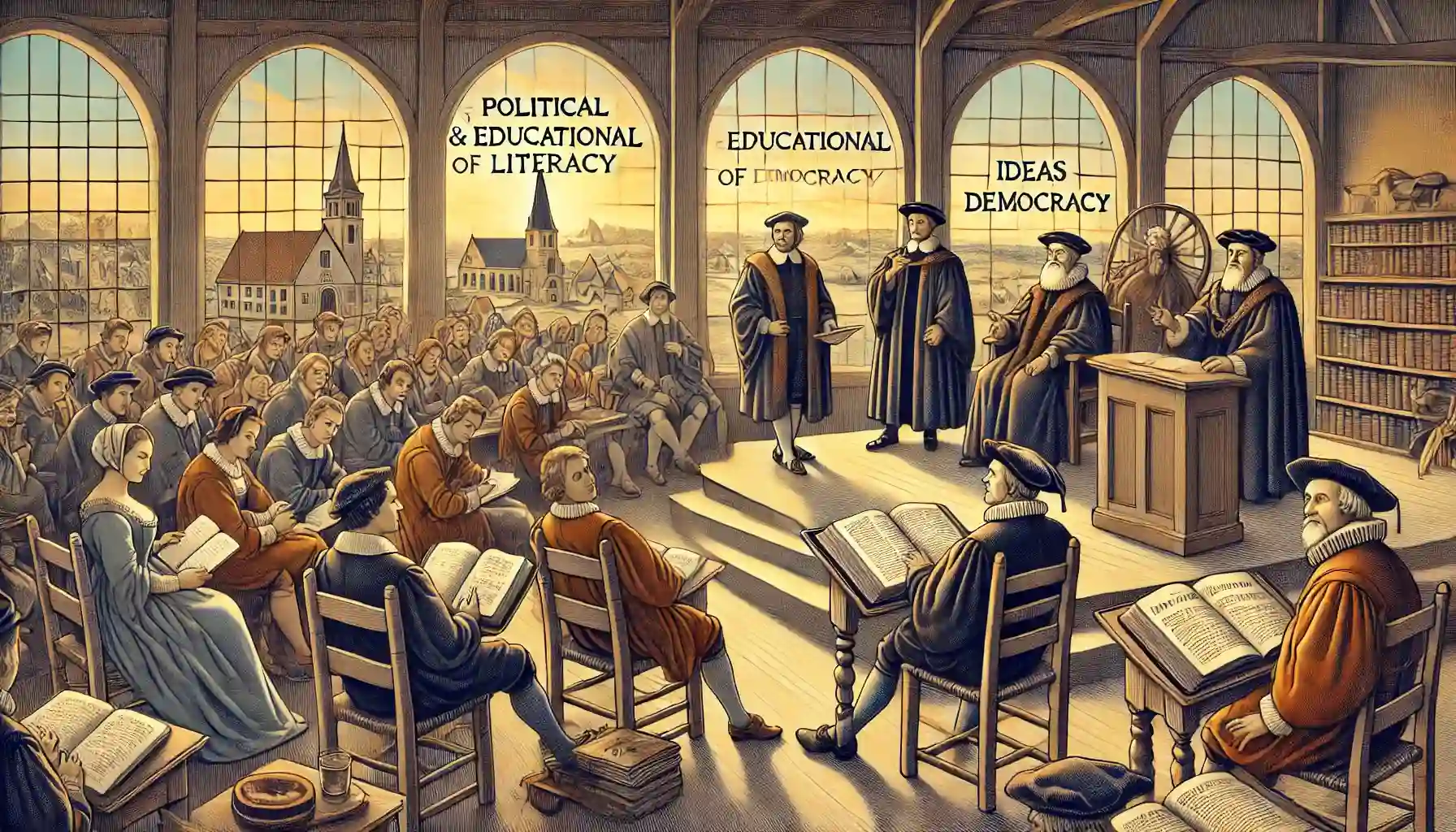The Reformation Day: A Key Turning Point in Christian History
The theme of this English language resource is "learning casual English through real events."
The theme of this English resource is "Learn casual English through real events."
Section 1: The Origins of Reformation Day
On October 31, 1517, Martin Luther, a German monk and theology professor, nailed his 95 Theses to the door of the Wittenberg Castle church. This act is often seen as the starting point of the Protestant Reformation, a movement that questioned the practices of the Catholic Church and led to significant Luther's main issue was with the sale of indulgences, which were essentially His bold move on this day sparked debates and a desire for change that would impact Christianity forever.
Q1: What are your thoughts on this part of the article?
Sample Answer: "I think it's amazing how one person's actions can ignite such a huge movement. to stand up for what he believed in is really inspiring."
Q2: Create a question excerpted from this article.
Sample Answer: "What action did Martin Luther take on October 31, 1517, that started the Protestant Reformation?"
Q3: What led Martin Luther to take action against the Catholic Church?
Sample Answer: "He was concerned about the sale of indulgences and wanted to reform church practices."
Now, let's talk using idioms.
Let the students choose one favorite idiom and make an example sentence.
Idiom used: "Sparked debates".
Explanation: This idiom means to start or initiate discussions or arguments, often about a controversial topic.
Example Sentence: "Martin Luther's actions sparked debates across Europe about the role of the church."
Section 1: Origins of Reformation Day
On October 31, 1517, a German monk and theology professor, Martin Luther, struck the 95 Theses on the door of the Castle Church of Wittenberg. This action, often seen as the beginning of the Protestant Reformation, called into question the practices of the Catholic Church and brought about major religious, cultural, and political changes throughout Europe. Luther's main issue was the sale of "letters of atonement," which were payments to alleviate the punishment for sin. His bold actions on this day triggered a debate and desire for change that would forever affect Christianity.
Q1: What do you think about this part of the article?
sample answer: "It's amazing how one person's actions can spark such a huge movement. The courage of Luther to stand up for what he believes in is truly inspiring."
Q2: Please create a question from the article.
sample answer: "What was Martin Luther's action on October 31, 1517, which marked the beginning of the Protestant Reformation?"
Q3: What was Luther's reason for taking action against the Catholic Church?
sample answer: "Because he was concerned about the sale of atonement notes and wanted to reform church practices."
Idioms used: "Sparked debates"
Description.: This idiom means to initiate or cause a discussion or debate.
model sentence: "Martin Luther's actions provoked debate throughout Europe about the role of the church."
Section 2: The Spread of the Reformation

The Reformation quickly spread beyond Germany and took hold Leaders like John Calvin and Huldrych Zwingli joined Luther in pushing for religious reforms. These reforms led to the establishment of various Protestant denominations, breaking away from the authority of the Pope and the Catholic Church. The Reformation didn't just change the church-it had far-reaching effects on European politics, education, and society. The Reformation didn't 't just change the church-it had far-reaching effects on European politics, education, and society.
Q1: What are your thoughts on this part of the article?
Sample AnswerIt's interesting how the Reformation led to more people becoming literate because they wanted to read the Bible for It shows the power of knowledge and education."
Q2: Create a question excerpted from this article.
Sample Answer: "How did the Reformation impact literacy in Europe?"
Q3: What was the effect of people reading the Bible in their own languages?
Sample Answer: "It helped increase literacy and allowed people to form their own interpretations of scripture."
Now, let's talk using idioms.
Let the students choose one favorite idiom and make an example sentence.
Idiom used: "Took hold".
Explanation: This idiom means to become established or to start to have a strong effect.
Example Sentence: "The Reformation took hold in many parts of Europe, leading to significant religious changes."
Section 2: The Spread of the Reformation
The Reformation spread quickly beyond Germany and took root in many parts of Europe. Leaders such as Jean Calvin and Friedrich Zwingli joined Luther in promoting the Reformation. These reforms led to the establishment of various Protestant denominations, which were independent of the authority of the Pope and the Catholic Church. The Reformation did not only change the church; it also had a profound impact on European politics, education, and society. People began to read the Bible in their own languages, literacy rates increased, and individual interpretation of the Bible took place.
Q1: What do you think about this part of the article?
sample answer: "It is interesting to note that the Reformation enabled many people to become literate in order to read the Bible. It shows the power of knowledge and education."
Q2: Please create a question from the article.
sample answer: "How did the Reformation affect literacy in Europe?"
Q3: What was the impact of people reading the Bible in their own language?
sample answer: "Literacy has improved and people have their own interpretations."
Idioms used: "Took root (Took hold)"
Description.: This idiom means to become established or to begin to have a strong effect.
model sentence: "The Reformation took root in many parts of Europe and brought about important religious changes."

Section 3: The Impact of the Reformation
It influenced education, as Protestant leaders emphasized the importance of literacy and encouraged people to read the Bible in their own languages. It influenced education, as Protestant leaders emphasized the importance of literacy and encouraged people to read the Bible in their own languages. This movement also had political ramifications, weakening the power of the Catholic Church and leading to the rise of nation-states. The Reformation laid the foundation for modern democracy by promoting individual thinking and questioning authority, principles that are still valued today.
Q1: What are your thoughts on this part of the article?
Sample Answer: "I find it fascinating how the Reformation helped shape modern political ideas like democracy. It's interesting to see how questioning authority can lead to such lasting changes."
Q2: Create a question excerpted from this article.
Sample Answer: "How did the Reformation influence the development of modern democracy?"
Q3: What were the political effects of the Reformation?
Sample Answer: "It weakened the power of the Catholic Church and contributed to the rise of nation-states and modern democratic ideas."
Now, let's talk using idioms.
Let the students choose one favorite idiom and make an example sentence.
Idiom used: "Questioning authority".
Explanation: This idiom means to challenge or doubt the legitimacy of those in power.
Example Sentence: "The Reformation encouraged people to start questioning authority, which eventually led to significant political changes ."
Section 3: Impact of the Reformation
The influence of the Reformation extended beyond religious practices. Protestant leaders stressed the importance of literacy and encouraged people to read the Bible in their own language. The movement also had political consequences, weakening the power of the Catholic Church and leading to the rise of the state. By encouraging individual thinking and questioning authority, the Reformation laid the foundation for modern democracy. These principles are still important today.
Q1: What do you think about this part of the article?\
sample answer: "It is very interesting that the Reformation helped shape modern political thought, e.g. democracy. It's amazing how questioning authority can create such lasting change."
Q2: Please create a question from the article.\
sample answer: "How did the Reformation influence the development of modern democracy?"
Q3: What were the political ramifications of the Reformation?\
sample answer: "It weakened the power of the Catholic Church and contributed to the rise of the state and modern democratic thinking."
Idioms used: "Questioning authority"™.
Description.: This idiom means to challenge or question the legitimacy of those in power. \frx}
model sentence: "The Reformation caused people to begin questioning authority and ultimately led to significant political change."






